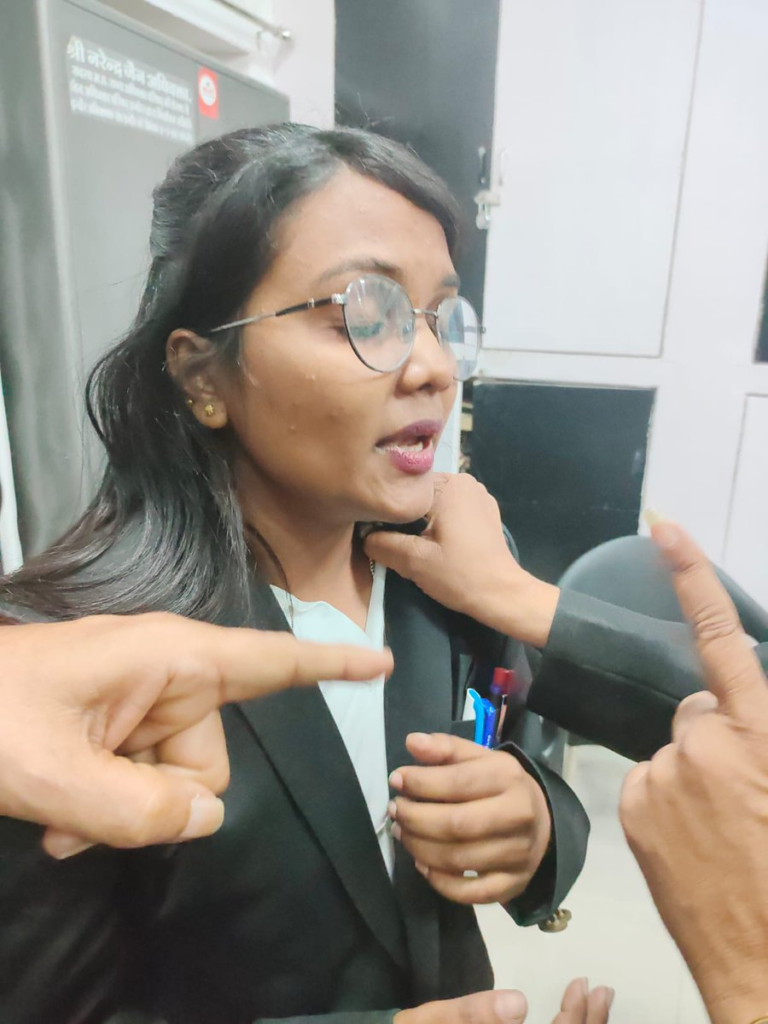Sonu Mansuri, a law intern from Khargone, Madhya Pradesh has been subjected to a harrowing ordeal after recording a video in a courtroom of the bail hearing of a Hindu fundamentalist. She was falsely accused, arrested, and labeled a “PFI agent” without any evidence.
Sonu’s arrest in January sparked a media frenzy, with certain sections of the media hastily reporting on the case without seeking her side of the story.
Without any factual basis, she was portrayed as a terrorist and linked to the banned outfit PFI (Popular Front of India).
The media’s reckless reporting not only compromised Sonu’s reputation but also had an adverse impact on her life behind bars, as the fellow inmates treated her with suspicion.
During her seven-day police custody following January 28, Sonu faced interrogations by multiple teams. She was denied the right to communicate with her family, change her clothes, or seek legal counsel.
Shockingly, the police repeatedly questioned her about her religious practices, including namaz (Islamic prayer), visits to Pakistan, and alleged connections to the PFI and infamous underworld figure Dawood Ibrahim.
Sonu persistently denied these baseless accusations, asserting that she never had any connections to any extremist organization.
The Unjust Arrest
Sonu’s arrest took place following an incident at the Indore district court, where she was mobbed by a group of lawyers after they saw her recording court proceedings of the bail hearing of a member of the Hindu fundamentalist Bajrang Dal.

They then falsely accused her of leaking the court proceedings to the PFI.
Sonu has alleged that the lawyers involved in her arrest resorted to intimidation tactics. They threatened her brother and the village sarpanch (head) to coerce her into making false statements.
One March 23, the day Sonu was released from prison on bail, the first thing she did was to scroll her sister’s phone and read all that was written about her during her 54-day incarceration.
Sonu was tensed and distressed, as she read how she had been labeled a Jasoos or spy for the banned Islamist Popular Front of India (PFI), according to the account given by her family.
Sonu’s mother is a home-maker in her early 30s. Sonu’s brother, 39, a spice merchant, said, “Sonu locked herself in a room and kept crying about all that she had lost.
Academic Consequences and Career Implications
Due to the prolonged incarceration and the subsequent threats faced by her lawyers, Sonu was unable to approach the court to request special arrangements for her exams. Consequently, she missed her third-semester exams and was informed by college authorities that she would have to repeat the semester.
The unjust incarceration not only impacted her academic progress but also raise concerns about the potential long-term implications on her career prospects. Sonu aspires to become a criminal lawyer.
Sonu’s case gained national attention, with advocates and activists rallying behind her. Later on, after recognizing the grave miscarriage of justice, a group of advocates approached the Supreme Court on her behalf to get her a bail, after she nearly spent over 50 days in the Indore prison.
The case of Sonu Mansuri sheds light on the alarming reality of wrongful incarceration, media trials, and the challenges faced by Muslims seeking justice in India.
It exposes the need for comprehensive legal reforms and greater accountability for those who abuse their positions of power.


